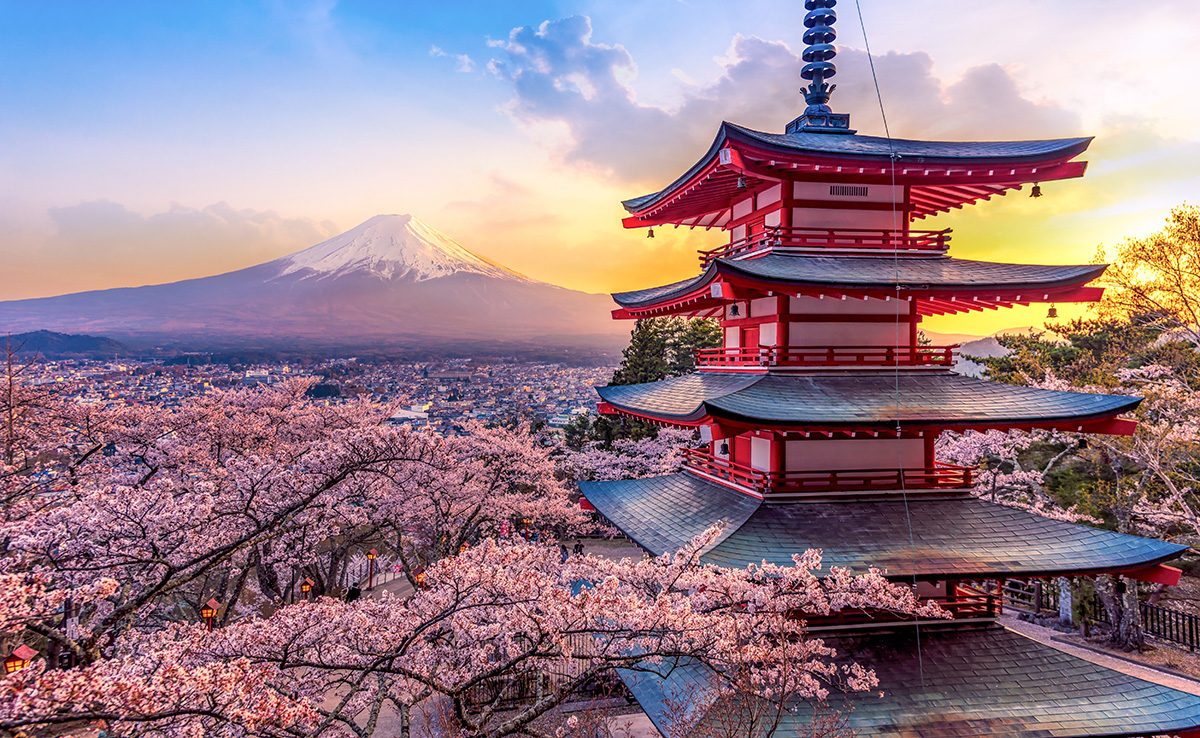
IS IT SAFE TO TRAVEL TO JAPAN IN 2026? INSIGHTS FROM TRAVEL EXPERTS
Japan has an established reputation as a highly organized country where everything moves at breakneck speed. However, Japan’s striking nature has led some travelers to question whether it’s still safe to travel to Japan.
“If anything, Japan has become safer in the last few years,” says Cory Varga of You Could Travel (Instagram: @youcouldtravel). “More people speak English, so they can help you if you get lost or need help with navigating.”
Cory is not alone in her opinion – other experts say Japan is safe, and the metrics back them up.
Japan Travel Safety: What Travelers Need To Know
Japan is richly deserving of its status as one of the safest countries on earth. However, travelers need to be vigilant, even in the world’s safest places. In Japan, that means watching out for:
- Traffic, if you drive (or walk around cities)
- Natural disasters, like typhoons or volcanic eruptions
- Language barriers leading to travel confusion
- Occasional political demonstrations or political violence
That’s not much! You can understand why Japan is considered a safe destination.
Japan Travel Safety By The Numbers
- The State Department has Japan at a level-one status, the status reserved for the safest countries on earth.
- Numbeo has Japan as the 11th safest country, Tokyo as the world’s 41st safest city (out of 334) and Osaka as its 103rd-safest city.
- Global Peace Index puts Japan 12th out of 163 countries, noting its effective security forces and its population’s general disposition towards safety.
- The Global Finance ratings of safest countries have Japan 22nd out of 134.
- American travelers ranked Japan 9th overall in the 2025 Safest Places Ratings conducted by Berkshire Hathaway Travel Protection, after ranking ninth the previous year.
With all that said, travelers may still have some trepidation about visiting Japan.
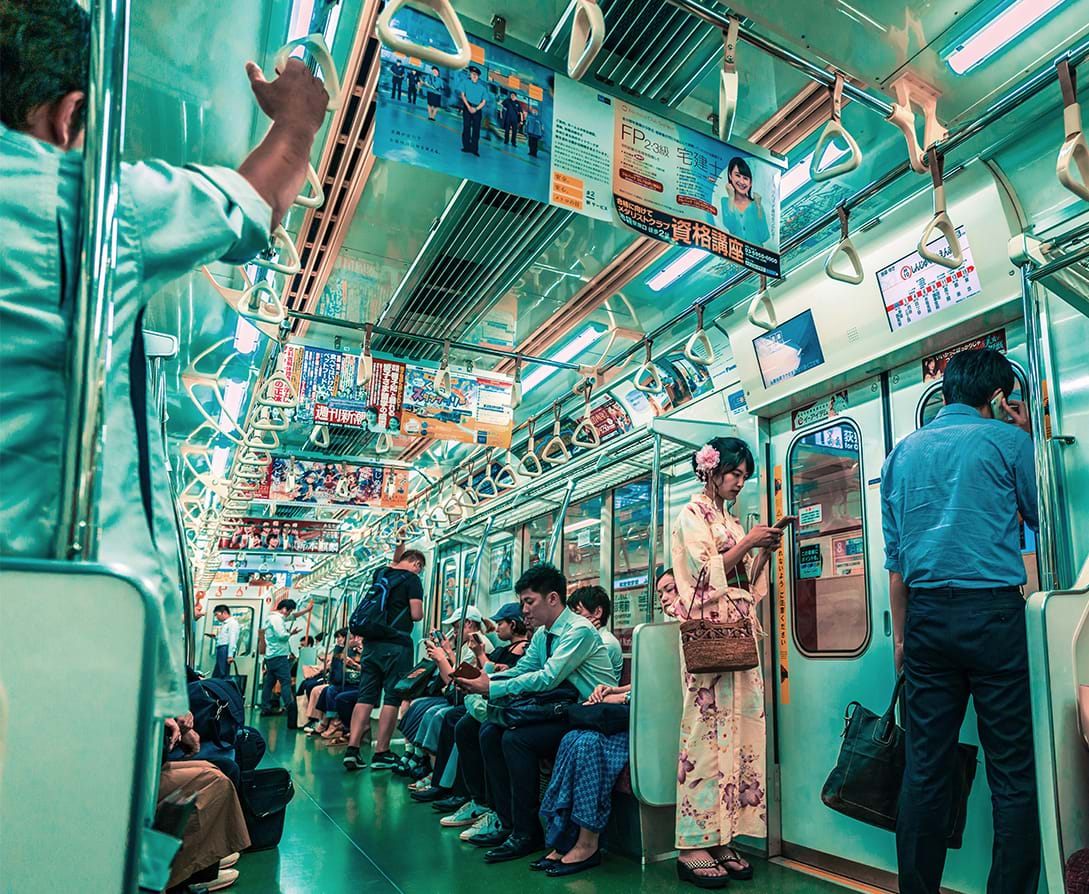 Photo by Jezael Melgoza on Unsplash
Photo by Jezael Melgoza on Unsplash
Transportation Safety In Japan
The images of transportation in Japan are of sleek bullet trains hurtling through the countryside and business-suited junior executives cramming themselves into subway trains like sardines.
And for the most part, those images align with reality.
Public transport
“Public transport is generally safe, clean and always on time in Japan,” Varga says. However, “subways can get very busy in large cities – so avoid travelling during rush hour in Tokyo.”
To avoid any confusion, we suggest downloading the HyperDia mass-transit schedule app – and trust the route it offers.
As for traveling by bullet train (Shinkansen), Varga endorses it as an alternative to flying, “so you can enjoy the views while you speed by in your comfortable chair.” She also recommends buying a Japan Rail Pass before your Shinkansen trip to save money.
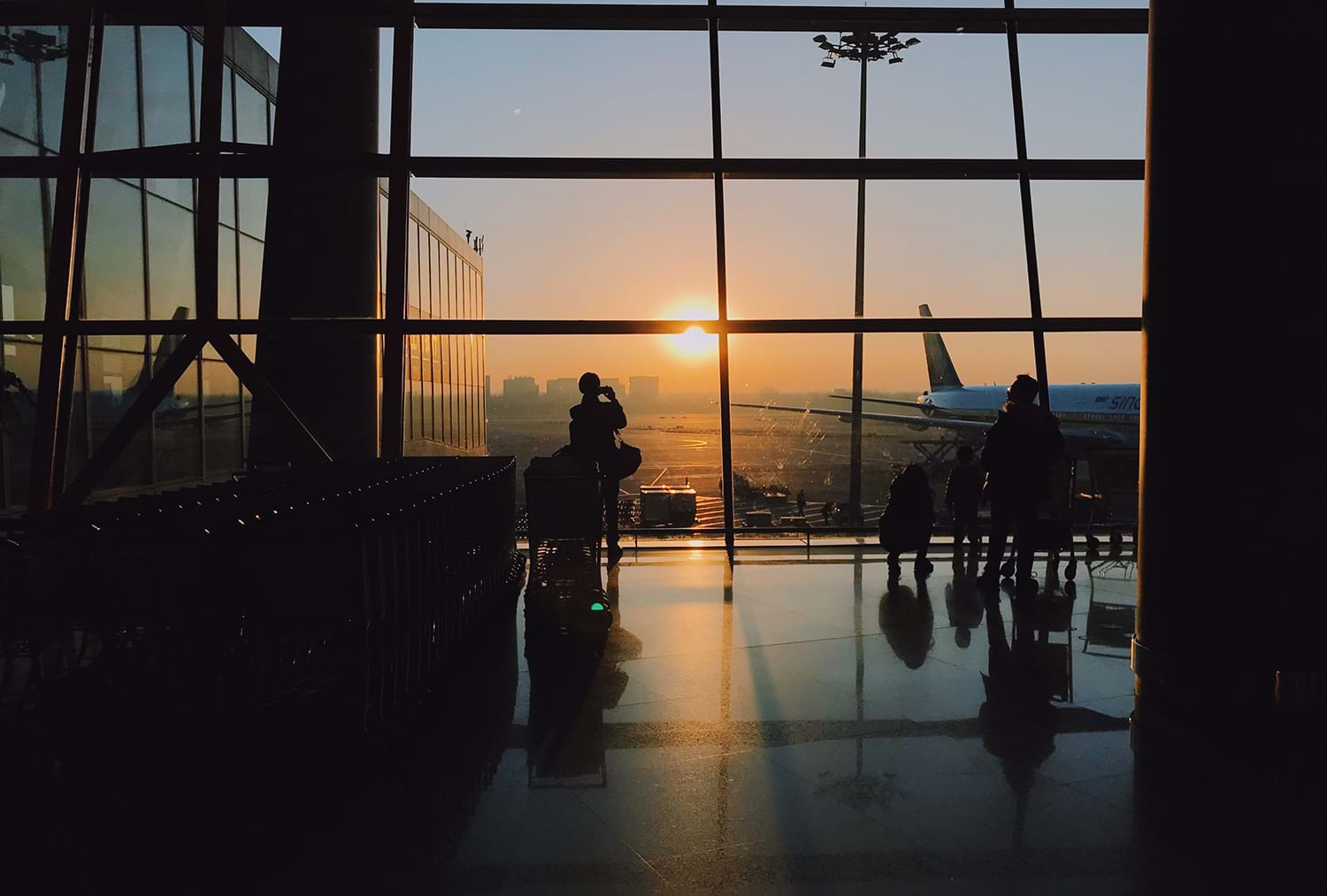 Photo by Keith Chan on Unsplash
Photo by Keith Chan on Unsplash
Flying
Japan is served by several national and regional airlines, including All Nippon Airways, Peach, Spring, Starflyer, and Jetstar Airways.
When it comes to flying, Varga says while flights are convenient, you should “check the rules of the airline in case they are different from what you are used to,” especially regarding carry-on luggage and added fees.
Driving
Driving in Japan can be challenging, for its city traffic and narrow country roads.
Varga recommends you:
- Always follow the rules
- Drive carefully (And remember that cars drive on the left in Japan)
- Stick to the 100kmh speed limit
Finally, ask for an "I am a foreign driver" sticker if you rent a car, so other road users will give you more space.
Getting Around In The Cities
Japan is one of the most densely populated countries on earth. As a result, if you visit Japan chances are you’ll be spending time in one of its cities.
Varga says that it’s safe to walk around even at night in Japan, though it’s important to be mindful of your surroundings.
“Cities are anything but chaotic in Japan,” she continues. ”If you stop for a second, you’ll see that everybody follows a set of simple rules: Walk on the right side of the pavement, don't stop in the middle of the street, no eating or drinking.”
Best of all, she notes, “You’ll find signs everywhere gently guiding you to your destination.”
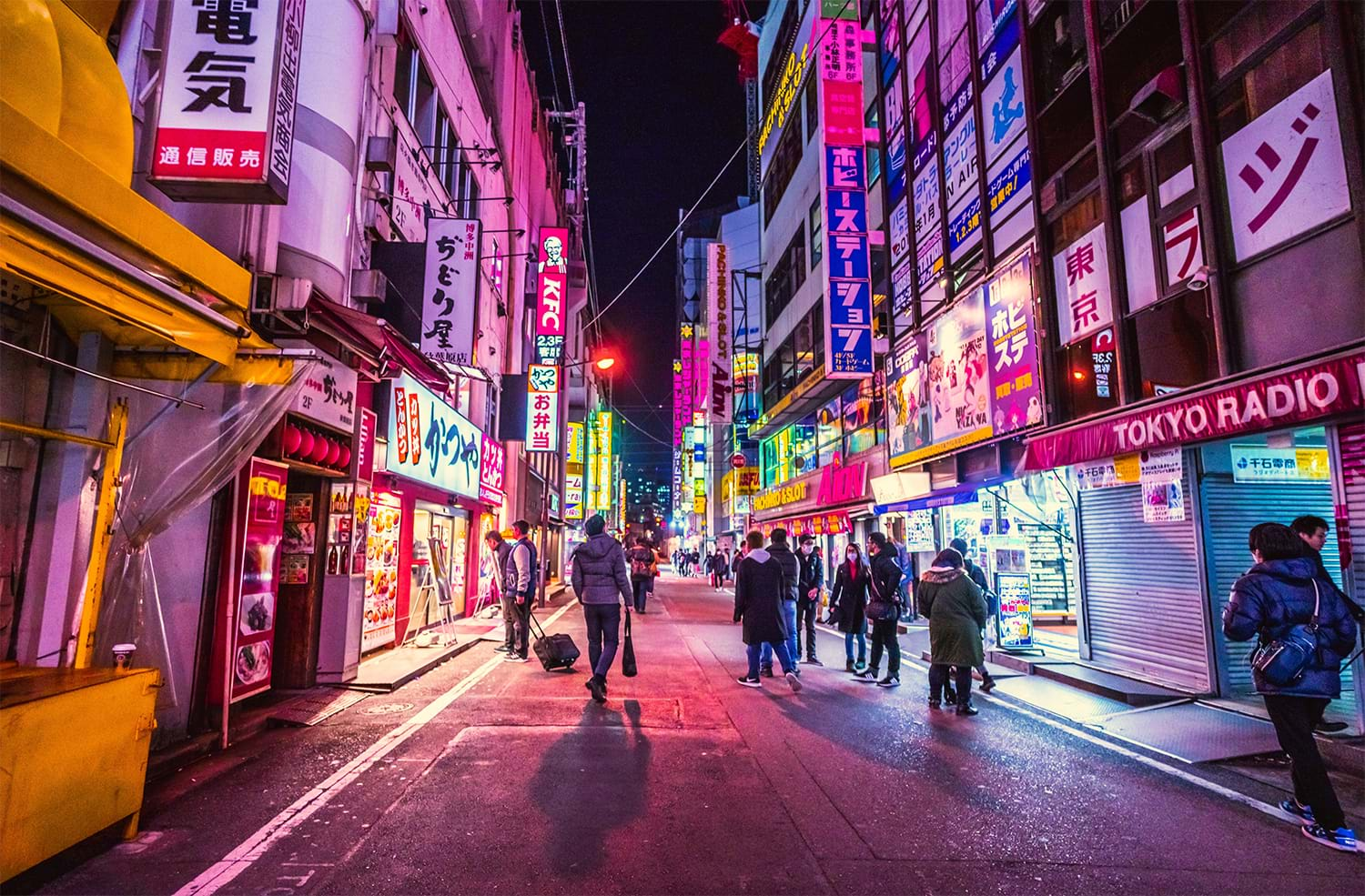 Photo by Jezael Melgoza on Unsplash
Photo by Jezael Melgoza on Unsplash
Dealing With The Language Gap
For American travelers, there are foreign languages and there are foreign languages.
Japanese falls into the latter category. It’s hard for most Americans to know where to start with the language. Fortunately, according to Varga, that’s much less of an issue than it used to be.
If you’re struggling with the language barrier, Varga says you should:
- Be patient explaining what you need. The number of English speakers has risen in the last few years, and generally people are eager to help.
- Use your hands and feet if you have to. Be demonstrative.
- Use Google Translate or other tools to translate simple sentences.
Natural Disasters
The Japanese islands are volcanic. There are more than 175 volcanoes in Japan, and more than half of them are active. The odds are slim of a volcano erupting while you’re visiting the country, but it can happen.
Along with the volcanoes come two related natural disasters: tsunamis and earthquakes. A combination of these caused the Fukushima disaster.
You can’t plan around earthquakes and volcanic eruptions, though it’s always a good idea to do a quick internet search before you leave. Booking your trip with travel insurance can help you recover if something does happen.
Fortunately, disaster response in Japan is quick and efficient. As Varga says, “In an emergency, officials will tell you what to do. Always follow their instructions.”
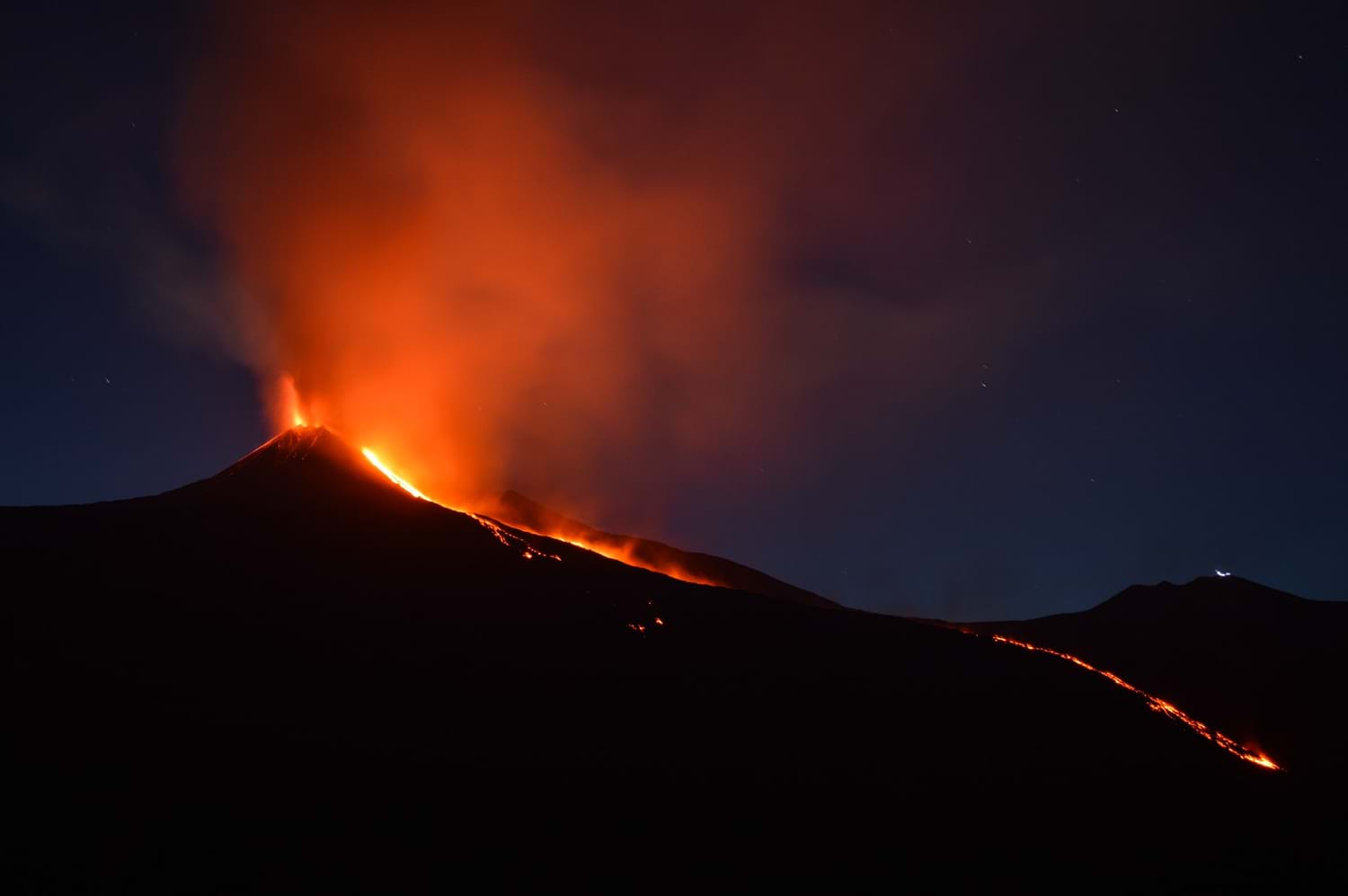 Photo by Shawn Appel on Unsplash
Photo by Shawn Appel on Unsplash
Major Events
There’s always something big going on in the Tokyo area, whether it’s a consumer-electronics show or a major sporting event like the Olympics.
In general, the Japanese government is predictably efficient at managing the increased crowds resulting from these events, whether it means adding mass transit or encouraging employees to work from home.
Still, there may still be some major crushes around rush hours.
Whenever you visit Japan, download the HyperDia mass-transit schedule app – and trust what it suggests.
Observing Societal Norms
Because Japan is an efficient, orderly country, it has a few basic rules of behavior. According to Varga, they are:
- Respect others. Observe how everyone behaves around you and mirror their actions.
- Avoid being loud, disruptive or rude.
- If you visit a temple or shrine, be quiet and respectful.
If you’re not sure how you should behave in a given situation, don't be afraid to ask.
Terrorism And Political Unrest
Political demonstrations occasionally happen in Japan. They’re generally non-violent and don’t look to involve tourists, though sometimes tourists can get caught up in the melee.
Varga suggests you avoid protests or large gatherings if you come across one.
Sports And Activities
If you’re inspired to try some sporting activities of your own while you’re in Japan, you should be fine. Sports and activities are about as safe in Japan as anywhere on the planet, with high levels of safety standards.
However, if you’re doing any activities with rented gear, always check the gear for safety, security, and wear, and follow instructions.
 Photo by Fitsum Admasu on Unsplash
Photo by Fitsum Admasu on Unsplash
The Bottom Line On Travel Safety In Japan
It’s not hard to travel safely in Japan – and it’s not hard to have a great time visiting this fascinating country.
“Have a lot of fun visiting Japan,” Varga said. “It’s going to be a unique experience – and it will change your life!”
Questions About Travel Insurance?
Check out our online guide, "What Is Travel Insurance All About?" We've provided in-depth answers to all your travel insurance questions, starting with the basics.